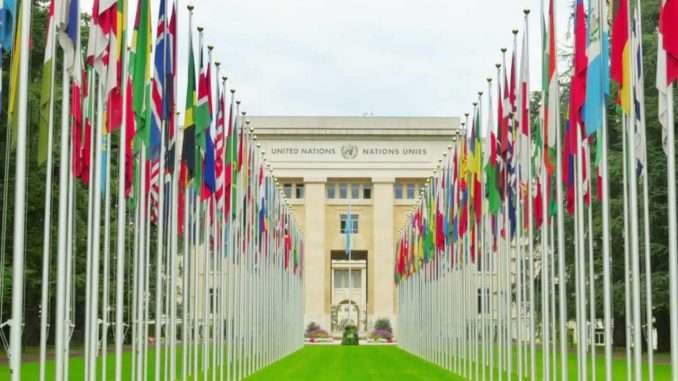
A United Nations commerce physique has really helpful a set of coverage actions to “curb the expansion of cryptocurrencies in developing countries.” The intergovernmental group confused that if cryptocurrencies turn into a widespread technique of cost, it might jeopardize the financial sovereignty of nations.
UN Trade Body’s Crypto Policy Recommendations
The United Nations Conference on Trade and Development (UNCTAD) urged authorities in growing international locations worldwide to take motion to stop the widespread use of cryptocurrencies final week.
UNCTAD is a everlasting intergovernmental physique established by the United Nations General Assembly in 1964. It is a part of the U.N. Secretariat. The group stories to the U.N. General Assembly and the Economic and Social Council. UNCTAD has 195 member states and 204 tasks in 70 international locations, its web site reveals.
“Global use of cryptocurrencies has increased exponentially during the Covid-19 pandemic, including in developing countries,” the group famous. “While these private digital currencies have rewarded some, and facilitate remittances, they are an unstable financial asset that can also bring social risks and costs.”
The intergovernmental physique detailed:
If cryptocurrencies turn into a widespread technique of cost and even change home currencies unofficially (a course of referred to as cryptoization), this might jeopardize the financial sovereignty of nations.
“While cryptocurrencies can facilitate remittances, they may also enable tax evasion and avoidance through illicit flows, just as if to a tax haven where ownership is not easily identifiable,” UNCTAD described. “In this way, cryptocurrencies may also curb the effectiveness of capital controls, a key instrument for developing countries to preserve their policy space and macroeconomic stability.”
The commerce physique defined that it has launched three associated coverage briefs. One, revealed on June 13, outlines the excessive value of leaving cryptocurrencies unregulated. Another, revealed on June 22, discusses public cost methods in response to the monetary stability and safety dangers of cryptocurrencies. The third transient, revealed on Aug. 10, focuses on how cryptocurrencies can undermine home useful resource mobilization in growing international locations.
One nation that has adopted bitcoin as authorized tender alongside the U.S. greenback regardless of repeated warnings by the International Monetary Fund (IMF) is El Salvador. The nation has purchased 2,381 bitcoins for its treasury since BTC turned authorized tender in September final 12 months.
UNCTAD has really helpful a set of coverage actions, stating that it “urges authorities to take the following actions to curb the expansion of cryptocurrencies in developing countries.”
The first advice is to “Ensure comprehensive financial regulation of cryptocurrencies through regulating crypto exchanges, digital wallets, and decentralized finance, and banning regulated financial institutions from holding cryptocurrencies (including stablecoins) or offering related products to clients.”
Secondly, authorities ought to “Restrict advertisements related to cryptocurrencies,” “Provide a safe, reliable, and affordable public payment system adapted to the digital era,” and “Agree and implement global tax coordination regarding cryptocurrency tax treatments, regulation, and information sharing.” The final advice urges authorities to:
Redesign capital controls to take account of the decentralized, borderless and pseudonymous options of cryptocurrencies.
What do you consider the U.N. Trade physique urging authorities in growing international locations to curb the widespread use of cryptocurrencies? Let us know in the feedback part under.
Image Credits: Shutterstock, Pixabay, Wiki Commons, lev radin
Disclaimer: This article is for informational functions solely. It is just not a direct supply or solicitation of a proposal to purchase or promote, or a advice or endorsement of any merchandise, providers, or corporations. Bitcoin.com doesn’t present funding, tax, authorized, or accounting recommendation. Neither the corporate nor the writer is accountable, immediately or not directly, for any injury or loss precipitated or alleged to be attributable to or in reference to using or reliance on any content material, items or providers talked about in this text.



